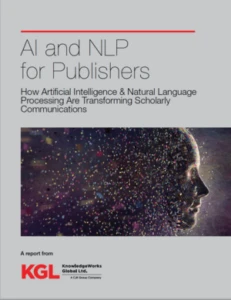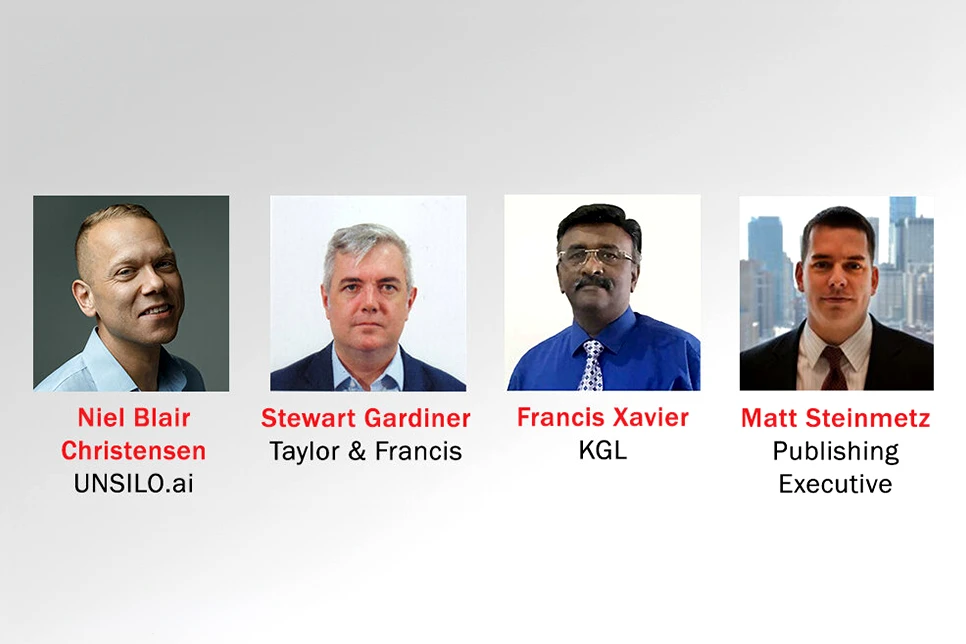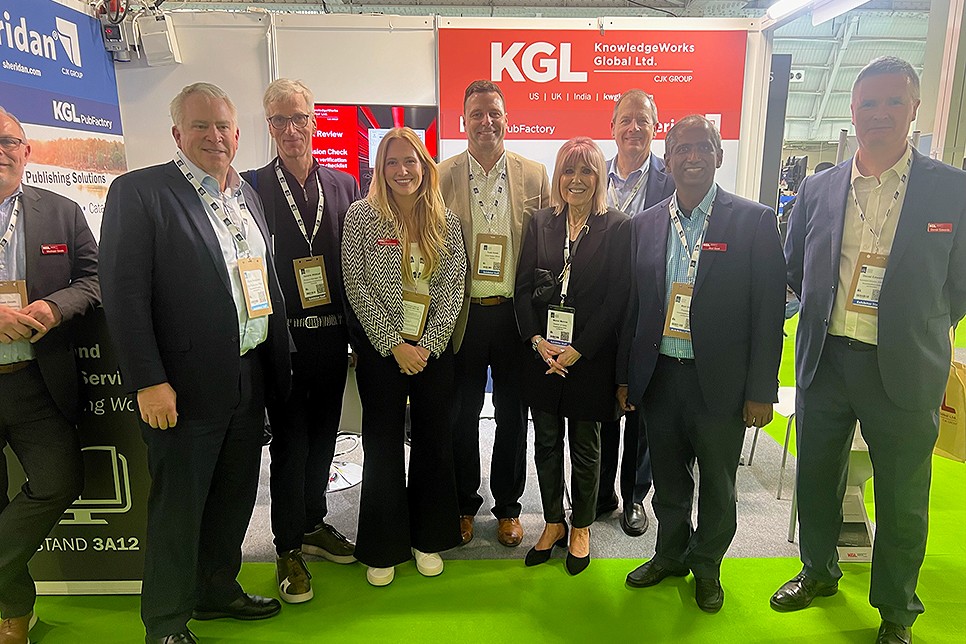by Mike Groth
Recently we teamed up with Publishing Executive magazine to host an informative and enlightening webinar entitled “How Artificial Intelligence and Natural Language Processing Can Increase the Speed and Quality of Publishing”, which explored current use cases and future applications of AI and NLP.
The formidable line-up of speakers included the magazine’s Publisher, Matt Steinmetz as chair, Stewart Gardiner, Global Production Director at Taylor & Francis, Neil Blair Christensen, US Sales Director at UNISLO.ai, and our very own VP Operations, Francis Xavier.
With publishers increasingly incorporating AI and NLP-driven applications into their pre and post publication workflows, there is no longer a shortage of real-life examples showcasing how these technologies are now being put into action by publishers.
This much-needed discussion demonstrated how publishers are working closely with technology providers to implement AI in an effort to help improve manuscript evaluation, simplify the editing process, improve author experience and boost the immediacy of science and research in the academic publishing sector.
Here are just three of the many things we learned from the webinar:
1) Staff buy-in will come in good time

STEWART GARDINER, TAYLOR & FRANCIS
One of the publishers leading the way in the incorporation of AI into the pre-editing step of journal production workflows is Taylor & Francis. Stewart Gardiner, who has been at the forefront of innovating this process at the academic publisher, revealed that during one of the company’s recent author and editor satisfaction surveys, machine copy editing proved more popular than human copy editing, contrary to what many predicted. He cited the “over intervention” in manuscripts as a particular bugbear when it comes to human editing in particular.
When quizzed about whether it is challenging to get buy-in from editors, he responded: “There are certainly some editors who don’t see the value in having these decisions made by computers. But most of our editors are actually authors themselves so they have the experience of submitting articles to journals and kind of get it.
“Generally speaking, once we put the service into production we found that satisfaction levels with editors were very high, simply because it increases the publication speed and reduces some of the author complaints about inappropriate and unnecessary copy editing.”
2) Implementing AI tools is an ongoing process

NEIL BLAIR CHRISTENSEN, UNSILO.AI
During his presentation, Neil Blair Christensen highlighted the importance of knowing the exact specifics of the problem a publisher wants to solve before working on AI and NLP implementations. He showcased three post-publication and two pre-publication use cases from UNSILO whereby these technologies and tools had been developed and incorporated to great effect.
Commenting on whether AI ever returns unexpected or misguided results, he said: “Absolutely. There is a lot of fine tuning that goes into making these algorithms work just the way a publisher wants them to work. It’s an ongoing process with a lot of conversation with end users to constantly understand how their problem is being addressed and solved.”
3) Expect time savings of 30-40 percent

FRANCIS XAVIER, KNOWLEDGEWORKS GLOBAL LTD.
According to KGL’s Francis Xavier, one of the first things publishers want to know when considering adopting AI-powered workflow solutions is exactly how much time can be saved.
He commented: “What used to take several days is now possible to complete within hours. One of the added advantages is that in a traditional workflow a manuscript would pass through various departments and have a mandatory stop at every stage. It used to be time-consuming, as a manuscript would regularly get stuck in a department waiting for somebody to attend to it.
“But with AI, there is no need for that because the system moves the manuscript along. So, I would say anywhere between a 30 and 40 percent improvement in the overall speed is possible.”
Michael Groth is Director of Marketing at KnowledgeWorks Global Ltd. (formerly Cenveo Publisher Services) and longtime denizen of the scholarly publishing industry. He can be reached at mike.groth@kwglobal.com.






